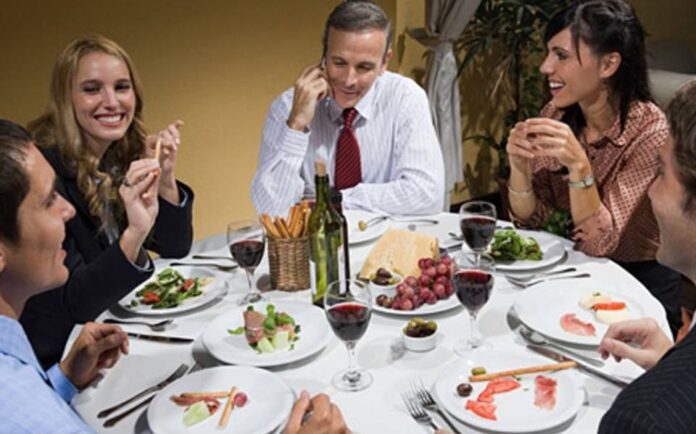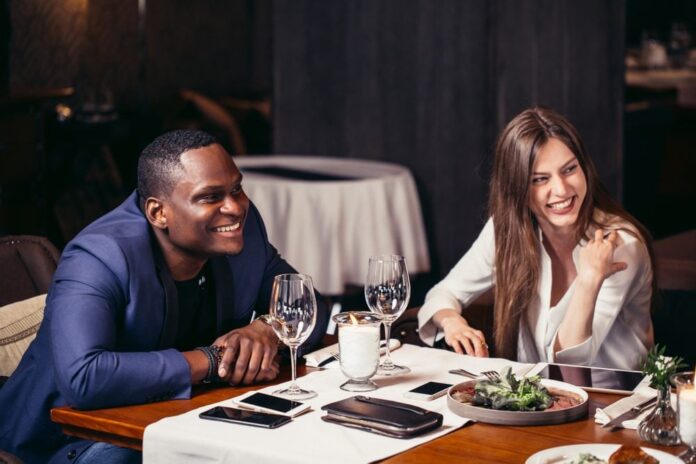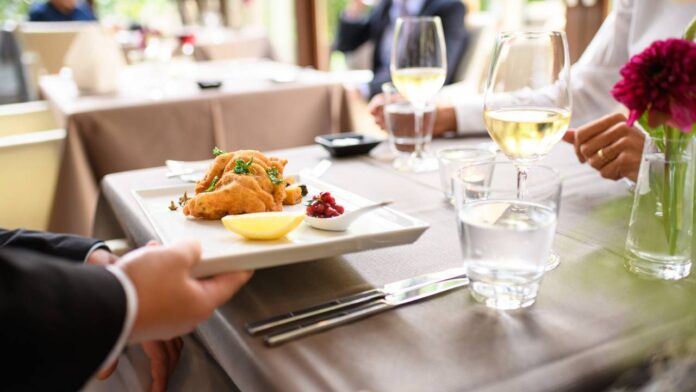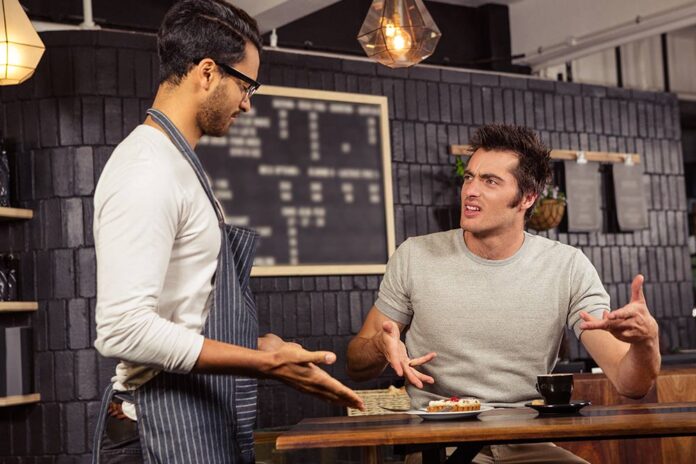
Dining etiquette plays a pivotal role in creating a positive impression during a dinner date. It goes beyond the mere act of eating; it reflects our manners, social grace, and respect for others. When we master the art of dining etiquette, we can navigate any dinner date with confidence and leave a lasting impression on our companions. In this blog post, we will explore the essential elements of dining etiquette, providing valuable insights and practical tips to help you have a flawless dining experience with your partner.
Dress Code and Appearance

Dressing appropriately for a dinner date demonstrates respect for the occasion and your partner. The right attire can help create a positive first impression. It’s important to consider the venue and dress accordingly. For an upscale restaurant, opt for a smart and elegant outfit, such as a dress or a suit. If you’re going to a more casual setting, choose a neat and stylish ensemble that reflects your personal style.
Grooming is equally crucial. Ensure that you’re well-groomed and presentable. Pay attention to your hair, nails, and overall hygiene. Remember to wear a pleasant fragrance, but avoid overpowering scents that may distract or bother your partner.
Table Manners: Seating

Approaching the table and taking your seat should be done gracefully. Allow your partner, and if you’re single, finding one at escorts near me will do the trick, to proceed first or follow the host’s lead if you are dining at a formal event. Pulling out chairs for your partner is a courteous gesture that showcases your thoughtfulness. Gently hold the backrest of the chair and assist your partner in sliding it back to facilitate their seating. Once they are comfortably seated, take your own seat with poise.
When it comes to seating, it’s essential to be mindful of personal space. Avoid sitting too close or too far away from your partner. Maintain a comfortable distance that allows for easy conversation and interaction throughout the meal.
Napkin Etiquette
The proper handling and use of a napkin are fundamental aspects of dining etiquette. As soon as you are seated, gently unfold your napkin and place it on your lap. Use the napkin to dab your mouth as needed during the meal, but avoid wiping your entire face or using it as a handkerchief. Blot your lips lightly to remove any food residue. When leaving the table temporarily, place your napkin loosely on the chair or to the left of your plate, signaling that you will return.
At the end of the meal, leave your napkin unfolded on the table to the left of your plate. This indicates to the waitstaff that you have finished dining. Avoid crumpling or folding the napkin, as it may create a messy appearance on the table.
Utensil Etiquette

Proper use of utensils is a key component of dining etiquette, especially during a multi-course meal. The general rule is to start from the outermost utensils and work your way in as each course is served. For example, if you’re enjoying a soup as the first course, use the soup spoon placed farthest to the right. When the main course arrives, switch to the appropriate fork and knife.
When holding utensils, use a relaxed grip with your fingers curved around the handles. Avoid gripping the utensils tightly or holding them like a pencil. Cut food into bite-sized portions one at a time and bring the food to your mouth, rather than leaning down to the plate. After each bite, rest your utensils on the plate, avoiding placing them directly on the tablecloth.
Bread and Butter
The etiquette of serving and consuming bread and butter should not be overlooked. When a bread basket is presented, take a piece of bread and pass it to your partner, using the bread plate to hold it while you break off a small bite for yourself. Next, butter your own piece of bread by taking a small amount of butter from the communal butter dish using your butter knife and spreading it gently on the bread.
Avoid biting directly into the bread or using your fingers to butter it. Instead, tear off small, manageable pieces and butter them individually. Remember to pace yourself and not overindulge on bread, as it is considered an accompaniment rather than the main focus of the meal.
Dining Order

Knowing the appropriate timing for starting and finishing your meal is crucial in dining etiquette. It’s best to wait for your partner or for the host to begin eating before you start your meal. This shows respect and avoids any awkwardness.
Pacing your eating to match your partner’s pace is another important consideration. Be attentive to your partner’s progress and try to finish your course around the same time. Eating too quickly or too slowly may create an uncomfortable dynamic or give the impression of rudeness. Take small, deliberate bites, savor the flavors, and engage in pleasant conversation to maintain a balanced and enjoyable dining experience.
Conversation Etiquette
Engaging in polite and meaningful conversation is crucial during a dinner date. Show interest in your partner by actively listening and asking thoughtful questions. Maintain eye contact and avoid distractions, such as checking your phone or looking around the room. Give your undivided attention to your partner, making them feel valued and appreciated.
When engaging in conversation, be mindful of the topics you discuss. Avoid controversial or uncomfortable subjects, such as politics or past relationships. Instead, focus on lighter and positive topics that allow you to connect and get to know each other better. Remember to be a good listener and give your partner ample opportunity to share their thoughts and experiences.
Handling Difficult Situations

Inevitably, unexpected situations may arise during a dinner date, such as spills, food mishaps, or unwanted dishes. It’s important to handle these situations gracefully to minimize embarrassment and maintain a positive atmosphere. If you spill a drink or food, apologize sincerely and offer to assist in cleaning up the mess. Use the appropriate cutlery or ask the waitstaff for assistance if you’re unsure how to handle a particular dish.
In case of disagreements or uncomfortable topics, strive to maintain a respectful and calm demeanor. Remember that a dinner date is an opportunity to connect and enjoy each other’s company. If a disagreement arises, express your thoughts and opinions tactfully, allowing room for open dialogue and understanding. Respect your partner’s perspective and avoid escalating the situation into an argument.
Paying the Billf
The etiquette of splitting or paying the bill on a dinner date can vary depending on cultural norms and personal preferences. However, it’s important to approach the topic with tact and consideration for your partner’s feelings. If you had previously agreed to split the bill, offer to pay your share and be gracious when your partner insists on treating you. If you wish to pay the bill, do so discreetly without drawing attention or causing discomfort.